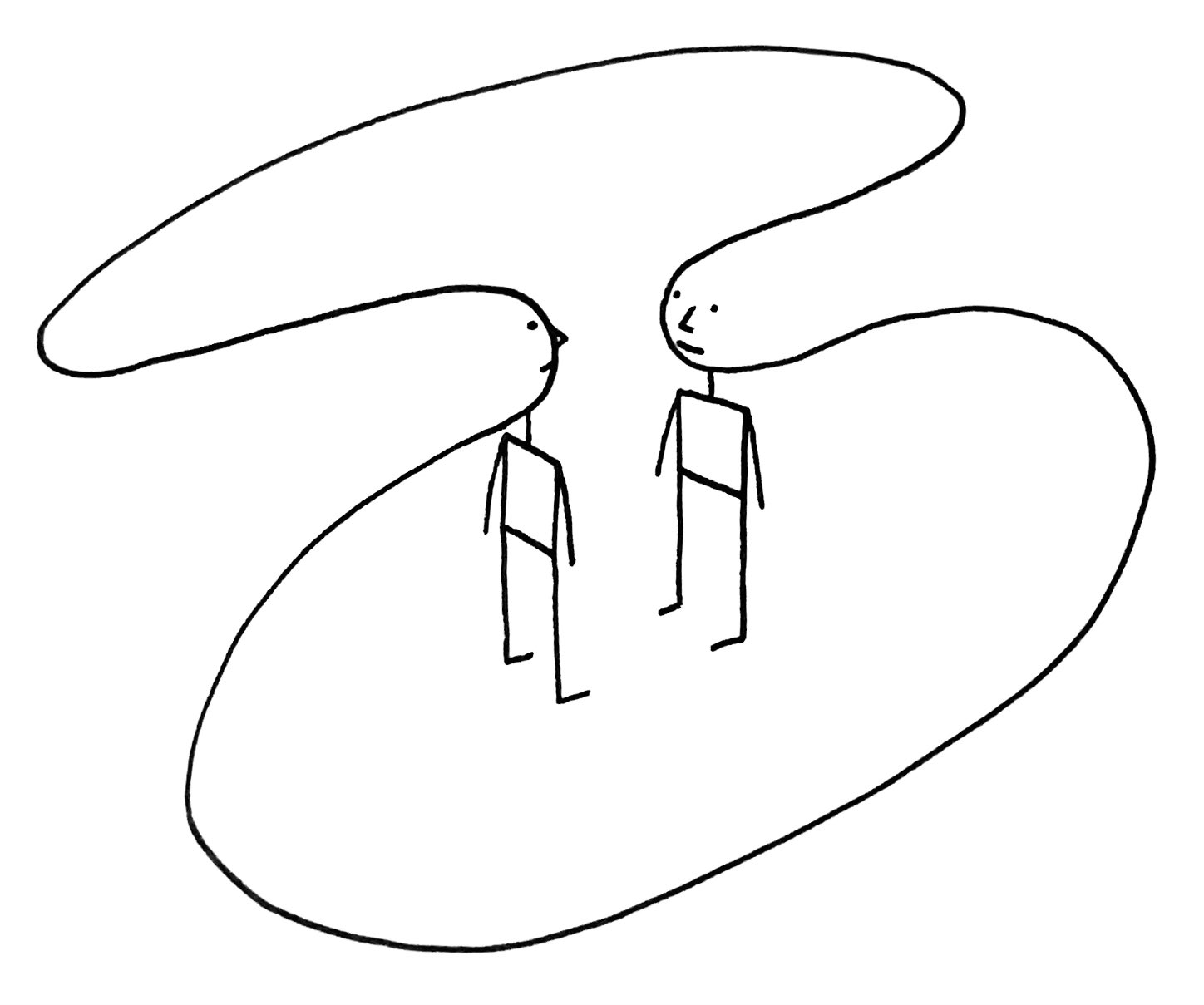
July 2025
All advice is a projection and following it is a bad idea. The first obvious reason why is that context matters. For example, your friend has a bad breakup. They say the breakup happened because their partner had XYZ qualities. They may advise you to stay away from anyone with XYZ qualities. For all you know they might be right. But there’s really no way of telling because:
- People suck at making objective observations and are typically unaware (or conveniently forget) the specifics of their situation.
- People’s expectations shape their reality which means their advice may be perfectly suitable for them and subtly wrong for you.
- The advice most likely to make its way to you is optimized for memetic fitness, and not for truth.
- Everything changes. Even if everything above was wrong, you’re still always working with old data.
There are a couple ways in which people suck at making good observations. The first is that everyone defines things differently. What you and your friend refer to as appropriate behavior in a relationship may be completely different.
Second is that most people fail to consider the entire situation, and in particular, the role THEY had in what happened. I don’t blame them, honest introspection can be painful, and like John Barth said “self-knowledge is always bad news.”

There’s also a deadly selection bias at play: the advice most likely to get to you has been optimized for memetic fitness (i.e., how easily it’s shared) and not for actually being useful. It typically has to do with emotional topics like relationships, career choices, and life uncertainty in general. Advice on how to pick fruit at the grocery store may be perfectly useful, but it doesn’t quite hit like dating advice.
A great example of this is the red pill community. It revolves around a set of rules for men going through hard times (e.g. breakups, unemployment, debt, etc.), meant to, among other things, improve dating success. Much of the advice is around self-care: getting fit, grooming, and practicing social skills. And at the start it (unsurprisingly) works. But if you keep going and buy into its beliefs (e.g., all women are transactional) you’ll start brushing up against some misogynistic tendencies that may not be what you were looking for.

The reason advice can get around being contagious without actually being useful long-term is that it tends to have a self-fulfilling effect. Your expectation of reality shapes it. The red pill stuff might be great at the start but if you start acting as if all women are transactional, the only women that will tolerate having you around are well… the transactional ones.
The advice you want doesn’t tell you what to look for. It tells you to look. It doesn’t tell you what to do. It tells you to do. Good “advice” doesn’t even answer your question, instead it points you away from implicit assumptions and towards whatever is actually appropriate for your life and goals. It pushes you towards a place of clarity where the right actions automatically make themselves clear.
None of this means you should just ignore everything people say, just that you shouldn’t take it blindly. Some projections precipitate a deeper understanding of the world. Like a Zen koan, you can use your friend’s bad advice to tease out something that’s bigger than the sum of your world and their world. Your friend tells you that women who do X are always bad. But in your experience women who do Y are ones that suck. Perhaps both experiences can be seen as a examples of insecure women. Perhaps both of you have been assholes to women, and maybe that’s why the women haven’t been great.
Of course, everything I wrote was just a projection. And if you read any of my other stuff and wonder whether it applies to you the answer will always be: it depends. Probably not. But hopefully it will precipitate some kind of useful understanding of the world. After all, all projections are wrong but some are more useful than others.